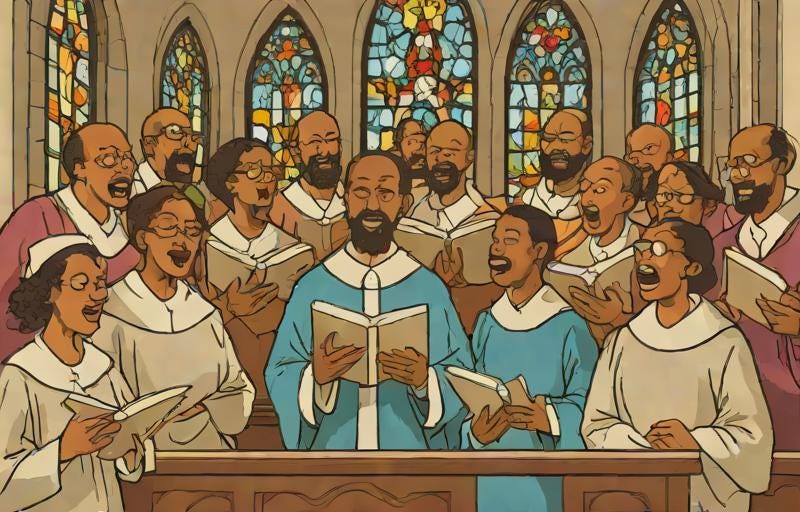The Victory of Easter
I grew up in the non-instrumental churches of Christ. We had a particularities and doctrines. The funny thing is that as I contemplate the many things I loved and held to even I as journeyed away from that tradition, I think of how our hymns and songs shaped theology better than many sermons. It is not that the sermons were bad or forgettable as I remember many of those as well, but the repetition of singing and of the senses involved reinforced ideas that stuck.
I am often asked how someone who grew up with what has Reformed Presbyterian roots came to have such a different view of atonement. After all, our language was adjacent, if not wholly, of penal substitution. The reason is because every Easter from when I was a pre-teen to my leaving we sang of victory. We did not just sing of it, we leaned heavily into that idea and participated in a liturgy of victory. (We would never have called it a liturgy, but…) Our song leader, Frank Walton intentionally led us through the victory of Easter and that has always stuck with me.
We sang acapella and in four part harmony. Our hymnbooks had music notations and arrangements for parts and we learned what part we sang and it was beautiful when voices raised. Some would argue that it is hard to set the mood and place without instruments, but Frank set it well. The hymn I remember the most and am thinking on this Easter morning is Low in the Grave. We sang the stanzas almost as dirges, slowly while seated. We did not use the chorus until we had sung all stanzas. It was a slow build to the singing of victory.
Frank would start us off with his pitch pipe to set the key and he would slowly direct with one hand while confidently holding the hymnal in his other. He began the hymn
Low in the grave He lay
Jesus my Savior!
Waiting the coming day
Jesus my Lord!
The slow and methodical dirge of sorrow of Jesus in the grave, but a tinge of anticipation.
Vainly they watch His bed
Jesus, my Savior!
Vainly they seal the dead
Jesus my Lord!
The hints, even as we continue the dirge that not all is as it seems
Death cannot keep his prey
Jesus, my Savior!
He tore the bars awayJesus my Lord!
Then the moment would build. I still feel the anticipation and excitement of what cam next, Frank Walton, the consummate Southern gentleman would simultaneously appear to stand taller, direct us to stand with a swoop of his hand and dramatically speed the tempo to victory as we proclaimed the chorus and the victory of Easter. The voices, the movement of our bodies, the invitation, and the proclaiming of victory over death rang out in voices raised. I still get chills thinking about it.
Up from the grave He arose (He arose!),
With a mighty triumph o’er His foes (He arose!)He arose a Victor from the dark domain,
And He lives forever with His saints to reign.
He arose! (He arose!)He arose! (He arose!)
Hallelujah! Christ arose!
That annual liturgy formed me. It shaped how I would come to understand what happened that first Easter. It still shapes how I pray and what my faith tells me. It is the victory of God welcoming humanity back in reconciling love. The victory of God who overturned old creation by having a woman preach the first Gospel message. It is the victory of a God who does not demand our death, but laid down life on our behalf so that we might be reconciled to God.
Up from the grave He arose (He arose!),
With a mighty triumph o’er His foes (He arose!) He arose a Victor from the dark domain,
And He lives forever with His saints to reign.
He arose! (He arose!) He arose! (He arose!) Hallelujah! Christ arose!




Yes! I have very similar memories. It did indeed shape me.
Beautiful!